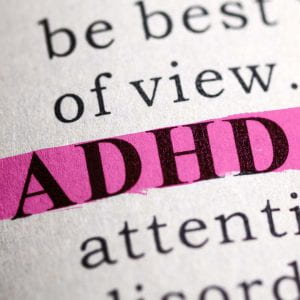 People with Attention Deficit Hyperactivity Disorder; more commonly known as ADHD; have problems focusing for long periods of time. What was I saying again?
People with Attention Deficit Hyperactivity Disorder; more commonly known as ADHD; have problems focusing for long periods of time. What was I saying again?
I found out I had ADHD/ADD in my third year at university, whilst I was in the middle of trying to write my dissertation. I had always had trouble paying attention. Most of my school reports through both primary and secondary feature words to the effect of: ‘Good pupil, but gets distracted easily, and distracts others.’
After speaking to my lecturer, Sarah, I went to see Student Support at Marjon, to see if there was anything they could do to help me figure things out. I was told they could bring someone in to test me, to find out if I had ADHD, dyslexia, dyspraxia, you name it. No needles or anything scary like that, just some memory recall, numeracy, literacy and block arrangement tests, and voila.
If I had a quid for every time I lost my train of thought, I’d be absolutely minted. Whilst writing this, I’ve had to remind myself what I’m writing about ten times. There’s this thing called Hyperfocus, which sits at the other end of the scale of attention deficit. Just like losing attention or becoming distracted is a common symptom of ADD, Hyperfocus means I focus in on something so much that I tune everything else out.
People have had whole conversations with me, and I’ll be zoned in (or out, depending on which way you see it) so much that I don’t hear a word. My other half throws cushions at me, that tends to work. So, while time management and attention span can sometimes be extremely challenging for me, once I get into a rhythm and focus, I can get loads done in a short timeframe. Perks. Sometimes, I feel like I’ve got superpowers.
It’s safe to say that none of this had come as a shock to me or anyone in my family. I’d always known I didn’t learn the same way as everyone else but couldn’t quite put my finger on how or why. I was probably too busy getting distracted to notice. I remember feeling shocked and almost upset that no one had ever noticed before and wondering how differently my life in education might have been if I’d found out earlier.
The hardest thing for me was always academic writing, which was clearly obvious to my lecturers Mike and Sarah, who worked hard to help me overcome the challenges I faced. If you go to Marjon, or even just know someone who does, you’ll have heard the phrase ‘small class-sizes’ a million times. I never get fed up of hearing that, because I know that it really does make a difference. Having more one-to-one support on my course is one of the reasons I was able to get through to third year before I knew there was something not quite right. I actually consider myself to be really lucky. The Disability Inclusion & Advice Service (DIAS) at Marjon were brilliant in helping me, and giving me the right support, so that I could complete my dissertation, and graduate. I was assigned a Study Skills Mentor, who I met with weekly, to discuss different ways of working, and overcome the challenges I was facing whilst trying to balance a heavy workload.
So, with all my new-found ways of working, I finished my dissertation, handed in all of my other work, got more work experience, and finished my third, and final year as a student at Marjon.
Fast forward to now. I graduated with a first-class honour’s degree in Journalism, and I’m about to start work as a Reporter for the local news outlet, Plymouth Live. I’ve learned a lot about myself during my time here, but most importantly, I know that I’ll always be #ProudToBeMarjon.